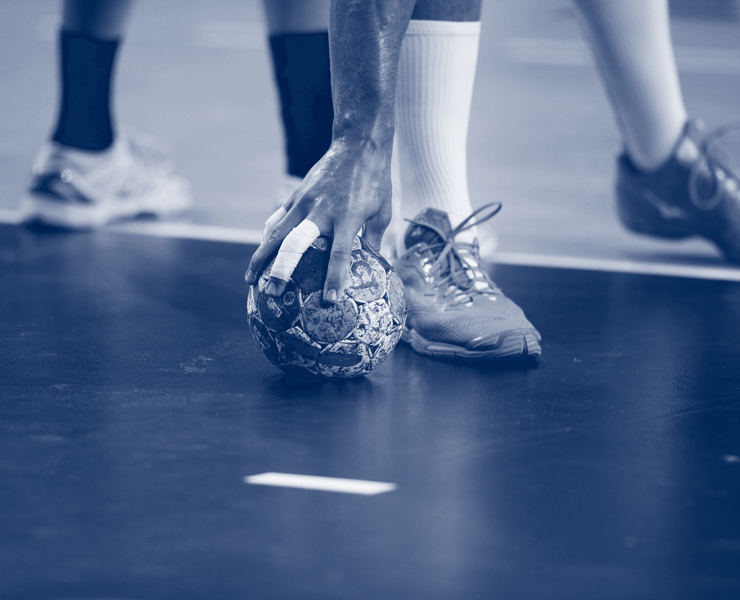
All previous winners on board; three Norwegians aiming for fifth trophy
The all-time top scorer, the record holders in terms of trophies and participations and the biggest crowds – here are the facts and figures for the Women’s EHF EURO 2020 in Denmark.
0 times, the current Olympic champions and four-time world champions Russia have won gold at a Women's EHF EURO. They made it to the final only twice, in 2006 and 2018.
1 nation – record champions Norway – has won the entire set of medals at the Women’s EHF EURO.
1 team, the European champion only, qualifies directly for the EHF EURO 2022.
1 player was elected MVP twice in the history of the Women’s EHF EURO: Gro Hammerseng (Norway) in 2006 and 2008. In 2012, her wife Anja Edin-Hammerseng was MVP.
1 time, the EHF EURO top scorer was also awarded MVP: Sweden’s Isabelle Gullden in 2014.
1 goalkeeper was elected MVP: Karin Mortensen in 2002, when she won gold with Denmark at home.
1 non-Norwegian belongs to the group of three-time European champions: Danish goalkeeper Lena Rantala.
1 coach was EHF EURO champion with men’s and women’s national teams: Ulrik Wilbek, with the Danish women in 1994 and 1996 and the Danish men in 2008 and 2012.
2 EHF EURO finals lasted longer than 60 minutes: in 2000, Hungary won 32:30 against Ukraine after extra time. In 2012, Montenegro needed 80 minutes against Norway before the 34:31 victory was sealed.
2 of 13 Women’s EHF EURO finals were without Scandinavian teams: in 2000, Hungary against Ukraine (32:30) and in 2018, France against Russia (24:21).
2 countries – Norway and Denmark – have won Women’s EHF EURO tournaments more than once.
2 of the three titles the Danes won were on home ground: in 1996 and 2002. In 2010, when they hosted the EHF EURO with Norway, they finished fourth. The only EHF EURO gold for Denmark in another country was the very first tournament in 1994 in Germany.
3 countries will host a Women’s EHF EURO for the first time in 2022: Slovenia, Montenegro and North Macedonia.
3 Women’s EHF EURO hosts also became European champions on home ground: Denmark twice and France in 2018.
3 – for the third time, on 20 December 2020, an EHF EURO final will take place in Jyske Bank Boxen, Herning, Denmark, after the women’s in 2010 and the men’s in 2014. In addition, there were the World Championship finals for women (2015) and men (2019) in the arena. Besides the Kombank Arena in Belgrade, Herning is the only arena to have held both Women’s and Men’s EHF EURO finals.
3 Norwegians have the chance to win their fifth EHF EURO title in 2020: Katrine Lunde, Marit Malm Frafjord and Camilla Herrem.
3 other Norwegians, who have already ended their careers, have five titles in their tally: Karoline Dyhre Breivang, Linn-Kristin Riegelhuth-Koren and Kari Aalvik Grimsbö.
4 teams qualify directly from the EHF EURO for the 2021 World Championship in Spain, for which only the hosts and defending world champions Netherlands have qualified so far.
4 IHF World Players of the Year will be on court at the EHF EURO 2020: Christina Neagu (2010, 2015, 2016, 2018), Stine Oftedal (2019), Heidi Löke (2011) and Andrea Lekic (2013).
5 times, a Norwegian was awarded MVP of the Women’s EHF EURO.
5 different countries have been Women’s EHF EURO champions since the competition’s inception in 1994: Norway, Denmark, Hungary, Montenegro and France. All of them will play in Denmark in 2020.
7 times (1998, 2004, 2006, 2008, 2010, 2014 and 2016), Norway were Women’s EHF EURO Champions.
9 Norwegians, who have won two or more Women’s EHF EURO titles, are in the current squad.
10 years ago, Denmark and Norway were joint EHF EURO hosts. This setup was also planned for 2020, but Norway had to cancel as organisers.
10 spots for the 2021 World Championship in Spain will be decided in the play-offs in June. Pending already qualified Spain and Netherlands' EURO rankings, teams placed fifth to 16th at the EURO will contest these play-offs in April 2021.
11 medals, Norway have won in total at Women’s EHF EURO events. In addition to their seven gold medals, the Scandinavians won three silver and one bronze. Norway are ahead of Denmark, who have five medals, followed by France, Hungary and Russia, with four pieces of silverware each.
13 goals was the biggest difference in a Women’s EHF EURO final so far, when Norway beat Spain 34:21 in 2008.
13 countries have won medals at Women’s EHF EURO events. The only two not competing in Denmark now are Austria and Ukraine.
14 tickets for the Women’s EHF EURO 2020 were to be determined in the qualification phase, but after only two rounds the stage had to be cancelled. The spots were allocated based on the final ranking of the Women’s EHF EURO 2018.
14 – The 2020 event in Denmark is the 14th Women’s EHF EURO. Denmark, Norway, Russia and Germany have been part of all tournaments since 1994.
16 – The field of participants has comprised 16 teams since the EHF EURO in Denmark in 2002; previously it was 12. As of 2024 (Austria, Switzerland, Hungary), there will be 24 teams, like at the Men’s EHF EURO tournaments.
18 players have won three or more gold medals in the history of the Women’s EHF EURO.
25 different countries have participated in the Women’s EHF EURO tournaments since 1994.
72 goals were scored by Hungarian Bojana Radulovic at the EHF EURO 2004 in her home country – the highest number ever at a Women’s EHF EURO.
96 Women’s EHF EURO games were played by Norway in 14 final tournaments, ahead of Denmark (90), Hungary (88), Russia (87) and Germany (83).
237 EHF EURO goals are in the tally of Romanian Cristina Neagu, the Women’s EHF EURO all-time top scorer, who passed Hungarian Agnes Farkas (205) in 2018.
2,596 was the highest number of goals at a Women’s EHF EURO tournament. This mark was achieved in 2004 in Hungary.
14,000 spectators at the EHF EURO 2018 final between France and Russia in the AccorHotels Arena in Paris is the Women’s EHF EURO attendance record.
237,980 fans in the arenas set the attendance record for a Women’s EHF EURO, in 2018 in France. Previously, the record was 215,752 in 2010 in Denmark and Norway.






